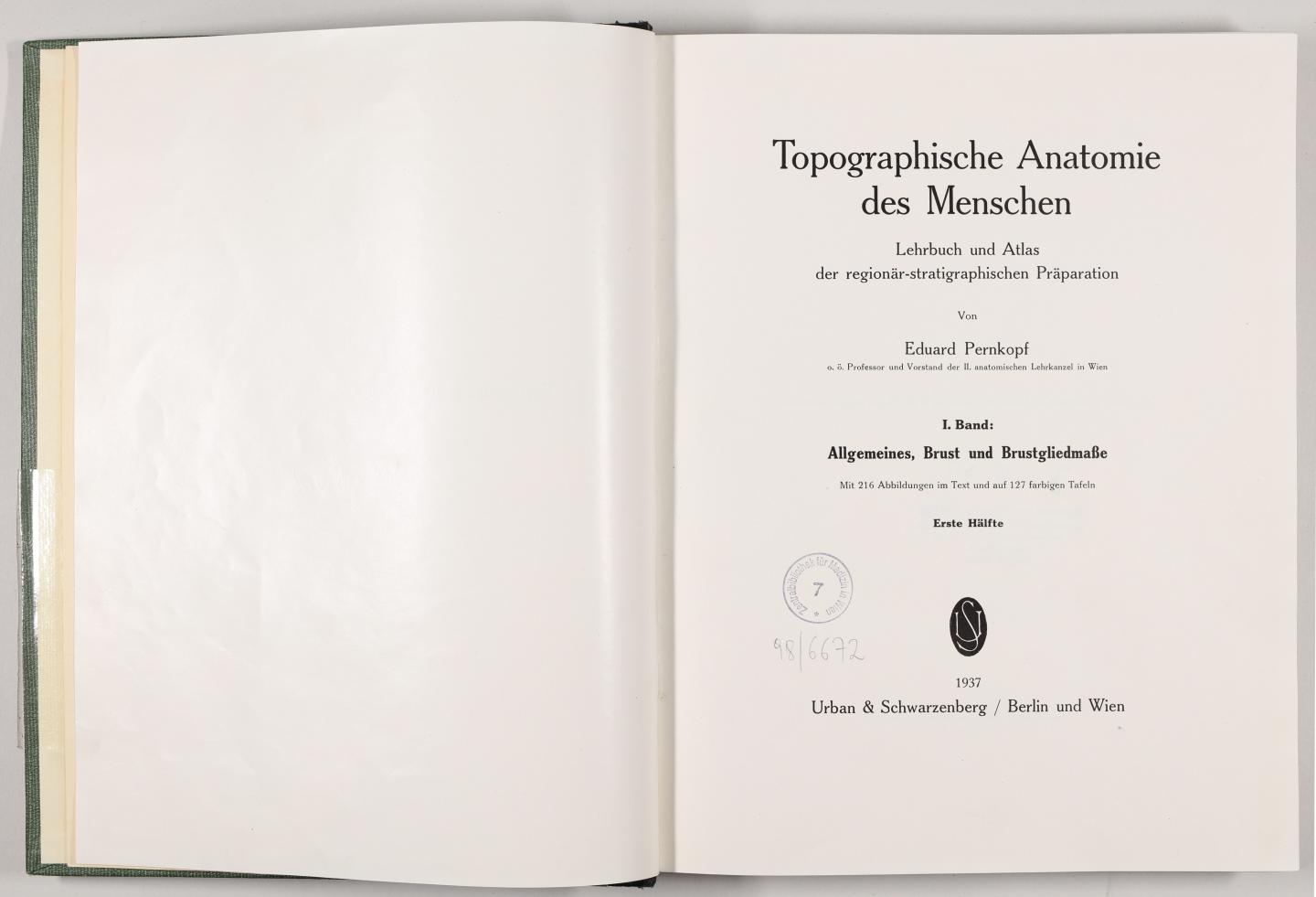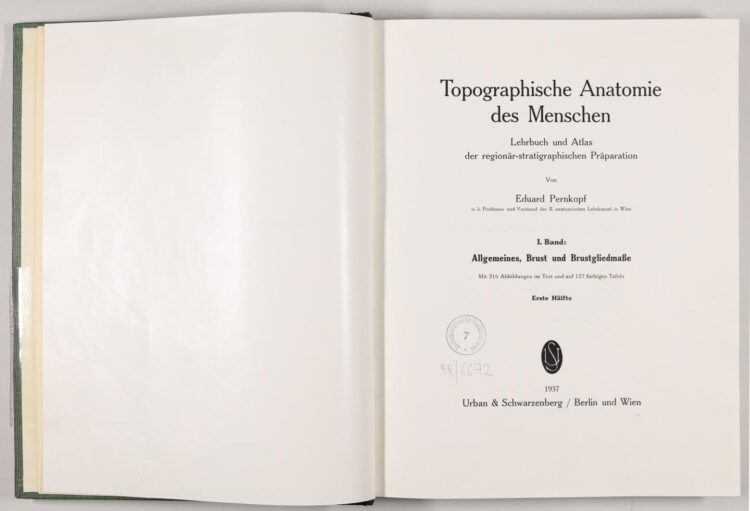Donation supports medical history research on National Socialism

Credit: Medical University of Vienna/Josephinum
Elsevier, an information analytics company specializing in science and health, has donated original drawings and other materials of the famous Pernkopf Atlas of Anatomy from its holdings to the collections of the Medical University of Vienna (Josephinum). In addition, Elsevier is funding the digitization, indexing and cataloguing of the holdings with a sum of 30,000 euros. A paper on this topic appeared today in the journal Annals of Anatomy.
Eduard Pernkopf (1888-1955) was head of the second anatomical institute in 1933 and became dean of the medical faculty in 1938 and rector of the University of Vienna in 1943. Partly responsible for his stellar career at the university from the so-called “Anschluss” of Austria to Nazi Germany in 1938 was his early commitment to National Socialism (Pernkopf joined the NSDAP in 1933 and the SA in 1934). Pernkopf achieved worldwide renown with his anatomical atlas, which is still regarded by many as a standard work.
In 1998, a commission of experts at the University of Vienna responded to international demands for a historical reappraisal of the Pernkopf atlas and determined that executed victims of Nazi justice most likely served as models for the anatomical drawings. The anatomical institute in Vienna received the dead bodies of at least 1,377 executed persons in total, including many members of the resistance against the Nazi regime.
With the acquisition of the then publisher of the Pernkopf Atlas, Urban & Fischer (orginally Urban & Schwarzenberg), in 2003, the original drawings and publication rights went to Elsevier. Based on Elsevier’s ethical and business standards, printing and licensing of the atlas and its illustrations ceased.
As part of the donation agreement between Elsevier and the Medical University of Vienna, signed in December 2019, the preserved drawings and copies of the Pernkopf Atlas will now return to their place of origin. The transfer to the Josephinum ensures professional archiving, conservation and digitization, as well as accessibility, especially for historical research.
“Due to the history of its creation, we made the decision early on not to republish the atlas. Nevertheless, we recognize that the drawings are of importance to scholars, especially those working in the field of medical history and ethics. The Josephinum and MedUni Vienna are the most suitable partners for this, and we would like to support their important work in this way,” said Nick Fowler, Chief Academic Officer at Elsevier.
“We are aware of our responsibility to historically reappraise the past of the Medical University and make it transparently accessible to the public. The Josephinum and the professorship for the history of medicine recently filled by Herwig Czech are making an important contribution with their work on Pernkopf’s role in National Socialism. With the acquisition of the original drawings from Elsevier, we would like to continue and deepen this work in the interest of the relatives and the public,” added Markus Müller, Rector of the Medical University of Vienna.
“For decades, the Pernkopf Atlas was considered an important anatomical work among physicians, scientists and students, some of which are still used today. For this very reason, as the custodians of the Pernkopf Collection, it is our responsibility to do educational work and to further reveal the shocking story of its creation together with historians and experts. We would like to thank Elsevier, whose donation significantly supports this work,” said Christiane Druml, holder of the UNESCO Chair of Bioethics and Director of the Josephinum.
The donation was made with the significant participation of Sabine Hildebrandt, M.D., Associate Professor of Pediatrics at the University of Harvard, who provided advice based on her many years of expertise.
###
Media Contact
Thorsten Medwedeff
[email protected]
Original Source
https:/
Related Journal Article
http://dx.





